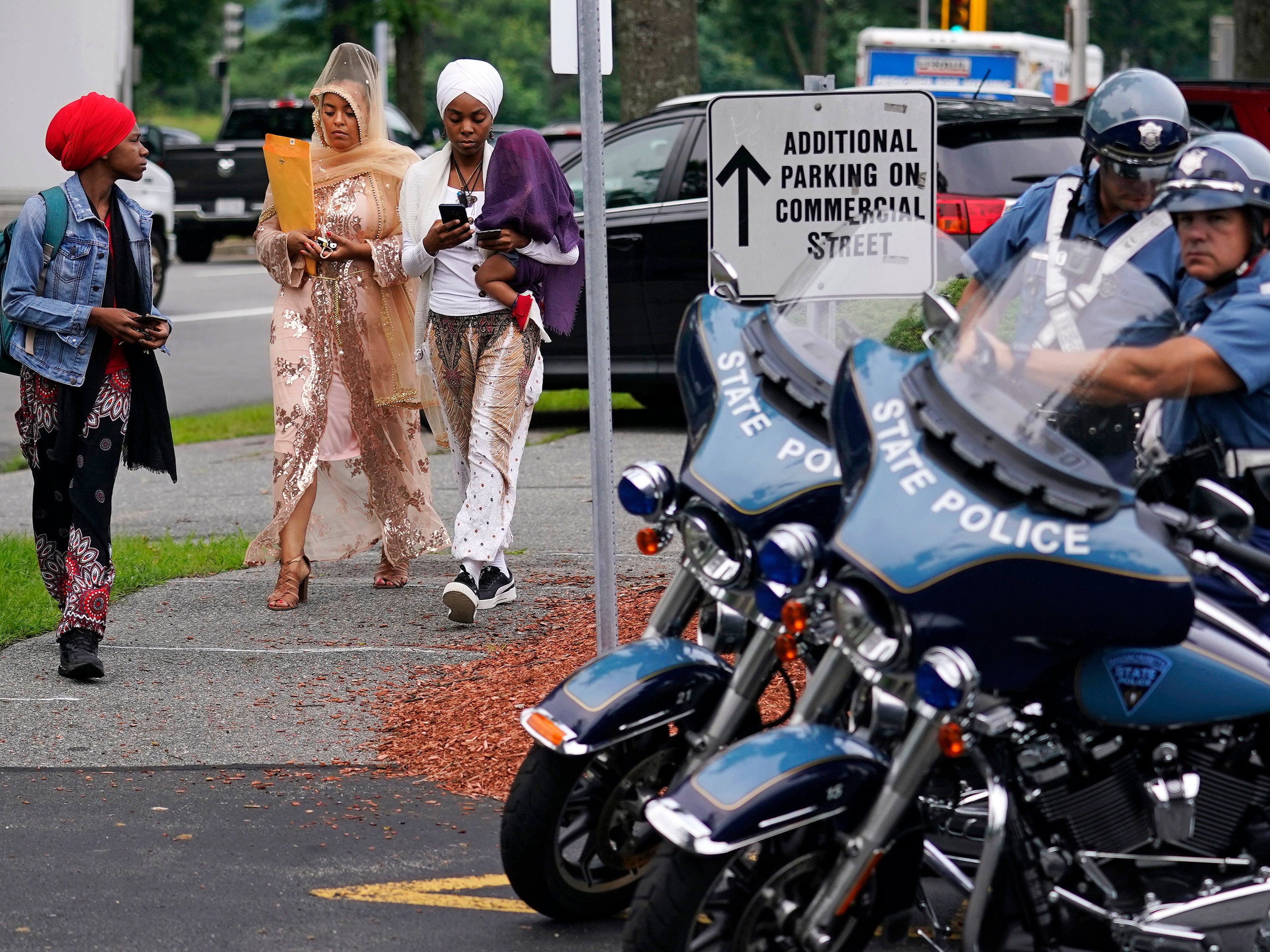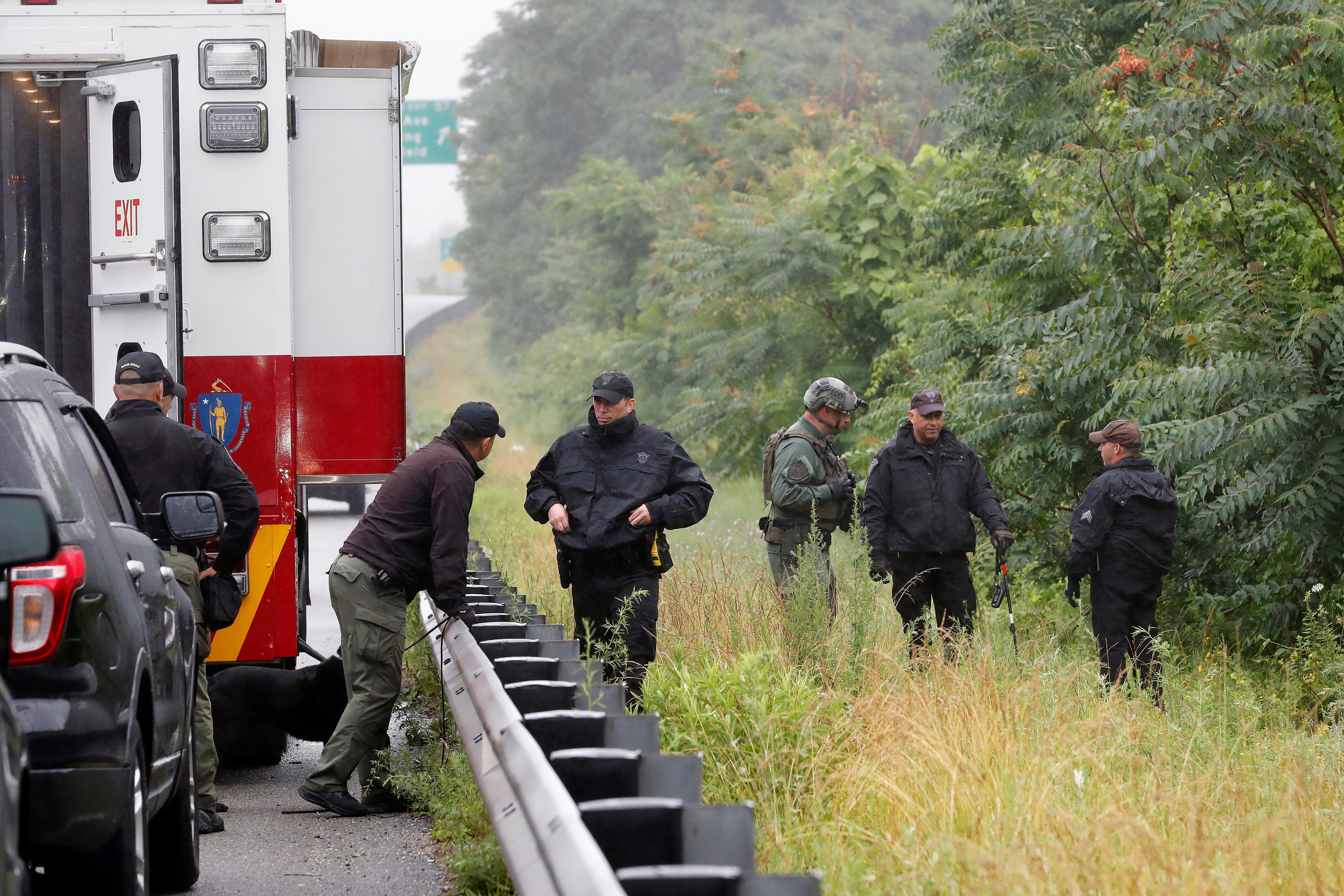Rise of the Moors: What we know about armed group who claim US laws don’t apply to them
Police have arrested and charged several members of a group that fuses anti-government ideology with an esoteric Afrocentric myth, writes Andrew Naughtie


Police in Massachusetts found themselves dealing with a highly unusual situation over the 4 July weekend when a group of heavily armed men from a fringe political movement ran into the woods during a traffic stop near the town of Wakefield. The resulting armed standoff shut down a stretch of highway for several hours, and ended in multiple arrests.
Since the end of the standoff, police have detained 11 suspects and recovered an array of weapons – three AR-15 rifles among them – which none of the people arrested had a licence to carry. The defendants have been charged with multiple crimes.
Attention has now turned to the group the suspects belong to: a Rhode Island-based sect calling itself Rise of the Moors, and describing itself as a group of “Moorish Americans dedicated to educating new Moors and influencing our Elders”.
Rise of the Moors is part of a broader movement of groups and individuals being monitored as potentially extremist by organisations including the Southern Poverty Law Center (SPLC) – but it is apparently a recent arrival to the political scene.
In an interview with local media, SPLC President Margaret Huang said the group is “an anti-government sovereign group” that rejects the authority of the government and therefore declines to pay taxes or comply with the law. What she was describing was an alignment between the group’s beliefs and those of a much broader tendency, the Sovereign Citizens movement, and its “Moorish” offshoot.
The Sovereign Citizen movement, which has its roots in right-wing anti-government ideologies that took hold in the early 1970s, is not an organised force but a loose affiliation of individuals and groups that subscribe to a very particular ideology.
That ideology’s most fundamental tenet is that Sovereign Citizens are not subject to the laws of the American government, whether at state or federal level. This belief manifests itself in many ways, and its subscribers justify it with sometimes bizarre theories that can lead them into direct conflict with law enforcement agencies.
According to the Anti-Defamation League, Sovereign Citizens generally believe that “at one time there was an American utopia governed by English ‘common law’, a utopia in which every citizen was a ‘sovereign’, and there were no oppressive laws, taxes, regulations or court orders” – and that “a conspiracy gradually subverted this system, replacing it with an illegitimate successor”.
This is only the beginning of the story that underpins sovereign ideology, a complex theory (with many variations) that often incorporates the passage of the 14th Amendment in 1868, Franklin Delano Roosevelt’s decision to take the US off the gold standard in 1933, and the use of capital letters on birth certificates. Sovereign Citizens are known to file byzantine court cases running to hundreds of pages as “protests” against the government in what the Southern Poverty Law Center (SPLC) describes as “paper terrorism”.
The Sovereign Citizen ideology is shared by a large but unknown number of people, but in many different forms, and with many believers operating entirely on their own. So where does Rise of the Moors fit in?

Rise of the Moors is part of a related but distinct movement loosely termed Moorish Sovereign Citizens. Dating in its current form back to the 1990s, the movement is a fusion of Sovereign Citizen ideology with older beliefs fostered by the Moorish Science Temple, a religious sect founded in the early 20th century.
Like the broader Sovereign Citizen movement, Moorish Citizens generally believe they are exempt from contemporary US law. But they tend to ground this in various esoteric Afrocentric beliefs, among them that African-Americans are in fact descended from Moroccans who discovered the US centuries ago, and that they are granted immunity from the law by a (non-existent) treaty between Morocco and the US signed in 1787.
Some in the Moorish Sovereign movement have denied that they are in fact Sovereign Citizens, but according to extremism expert JJ McNab says, this does not necessarily mean much.
“Sovereign Citizens don’t often call themselves that,” she wrote after the Wakefield incident. “Many go out of their way to distance themselves from the label with pat phrases like, ‘There’s no such thing as a sovereign citizen; that’s an oxymoron,’ and strongly worded website disclaimers.”
Another expert on the movement, Mark Pitcavage, told The Boston Herald that Rise of the Moors is unusual because of its apparent interest in paramilitary activity, with the armed-to-the-teeth suspects in the Massachusetts standoff apparently telling police they were en route to Maine for “training”.
As the SPLC writes, Moorish Sovereigns “believe that their status as members of a sovereign nation imparts immunity from federal, state and local authorities” and “use this perceived immunity to justify refusing to pay taxes, buy auto insurance, register their vehicles and to defraud banks and other lending institutions”. And more disturbingly, “this belief in immunity from legal authority has led some Moorish sovereigns to initiate violent confrontations with law enforcement”.


Join our commenting forum
Join thought-provoking conversations, follow other Independent readers and see their replies
Comments